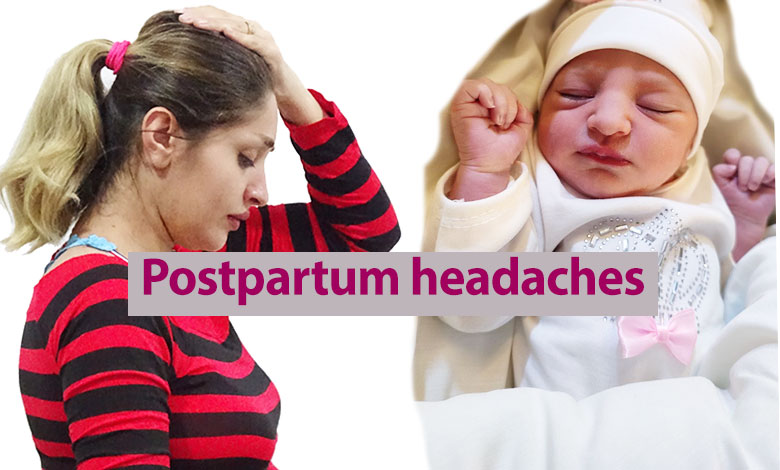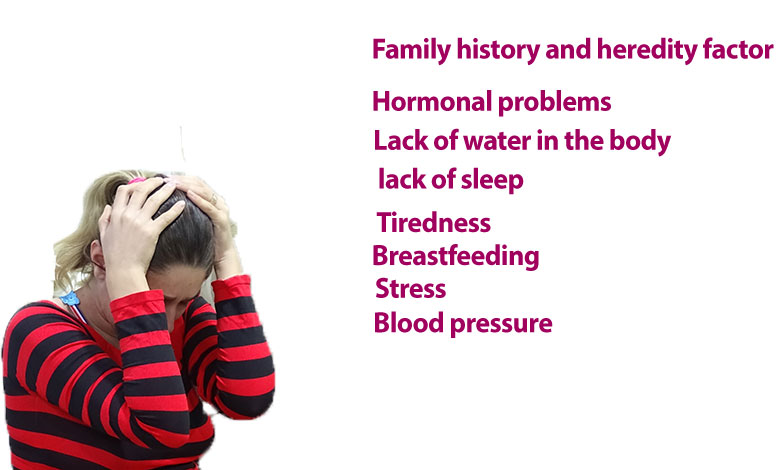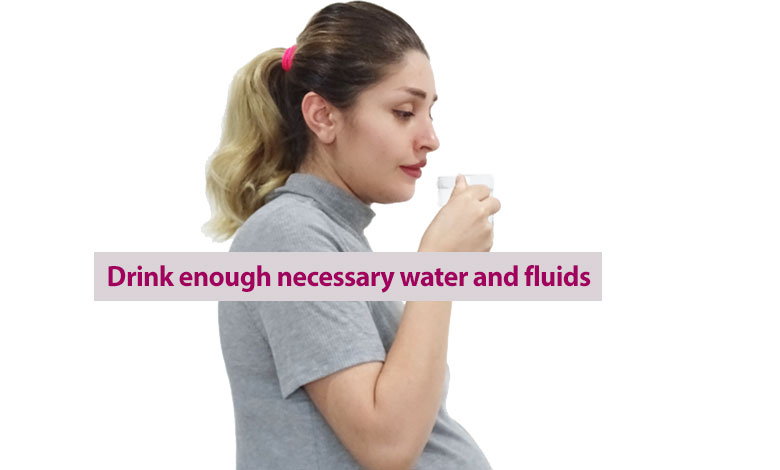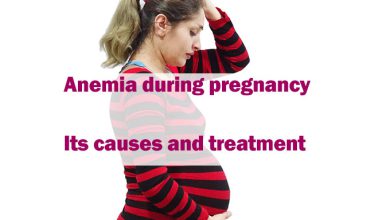Postpartum headaches from causes to treatment

Headache is an annoying problem that can happen to anyone and at any age for different reasons. Childbirth is one of the main causes of headaches in women. Based on observations, many people have experienced headaches and sometimes dizziness for some time after the birth process, which sometimes continues up to six weeks after birth.
These headaches can be mild or severe. It is possible that these headaches occur in both types of birth, i.e. natural and cesarean section. These headaches have different causes and are not dangerous. In the following article from our magazine, we will introduce you to the causes of headaches after childbirth.
Related posts: Lowering blood sugar during pregnancy
Postpartum headache
As a result of childbirth and the birth of a child, the mother’s hormones undergo severe changes, and as a result of this birth, the body experiences stress, wear, and tear, and a drop in sugar. All these factors work hand in hand and cause postpartum headaches in many mothers.
Natural postpartum headaches
The most common cause of dizziness and headaches after natural childbirth is the pressure on the body and areas of the head, neck, and pelvis. Also, due to the pain in natural childbirth, the blood sugar level is low, and this factor alone causes headaches.
Headaches after cesarean delivery
Despite the fact that during cesarean delivery, the mother does not suffer pain, due to the injection of anesthetic drugs or anesthetics that are injected into the spinal cord, the person gets a headache after giving birth. Headaches after cesarean delivery usually begin one to two days after delivery.
These headaches can be symptoms of various diseases, the cause of which can be identified by referring to a specialist in obstetrics and gynecology. Dear ones, you can ask your questions and get guidance from the best obstetricians and gynecologists through online consultation.
Causes of postpartum headaches
Postpartum headaches are divided into two categories: primary headaches, which include migraine and tension pains, and the second category, secondary headaches, which are caused by a disease in the body. The causes of primary headaches may be the following options:
In this infographic, complete information about the causes of unpleasant headaches after childbirth has been well drawn, including stress, fatigue, and breastfeeding.
-
Family history and heredity factor
Some people have a hereditary history of postpartum headache, which disappears easily after a while.
-
Hormonal problems
Pregnancy and childbirth are factors of many changes in hormones. Usually, the level of estrogen decreases after childbirth, when the level of estrogen in the body decreases, a person gets a headache.
-
Lack of water in the body
One of the important causes of all types of headaches is the reduction of body water and not consuming enough water. Especially in the postpartum period, when the mother may not pay enough attention to the water supply due to being anxious and taking care of the baby.

- lack of sleep
With the birth of a baby and long-term fatigue and insomnia of the mother, the body suffers from a lack of sleep and severe fatigue, and this fatigue may appear in the form of symptoms such as headaches.
-
Tiredness
The process of pregnancy and after childbirth is a very tiring process for mothers. With the birth of a baby and the beginning of the responsibilities related to him, the mother’s attention to herself is reduced and injuries such as headaches are inflicted on her.
-
Breastfeeding
When the mother starts breastfeeding, hormones related to breastfeeding (oxytocin) are secreted in the body, which is one of the causes of headaches during breastfeeding. According to the mother’s body system, the duration of this type of headache is different.
-
Stress
Many people experience severe depression and stress after giving birth. Sometimes these stresses cause pain in the head area.
-
Blood pressure
Pregnancy and after childbirth causes many changes in the body, one of which is the rise or fall of blood pressure. Changes in blood pressure are one of the most important causes of headaches in people.
The second cause of headache
- Meningitis
- Take some medicine
- Preeclampsia (this condition is caused by high blood pressure. When a person suffers from this disease, a person often has protein in the urine. Preeclampsia is often a dangerous condition and leads to complications such as seizures and sometimes coma.)
- Reduce and eliminate caffeine
Postpartum headache complications
The headache that occurs after childbirth is a very normal thing and often does not cause any harm because most of the types of headaches after childbirth are of the primary type that disappears over time without leaving any side effects. But in rare cases, a person suffers from secondary headaches, in this case, it is necessary to see a doctor as soon as possible because delaying the treatment process may lead to irreparable complications.
Treatment of postpartum headaches
The treatment of early headaches after childbirth, whether natural childbirth or cesarean delivery, is basically easy and can be relieved with drugs such as acetaminophen, proven, aspirin, naproxen, and drugs to control dizziness and nausea. In the case of secondary headaches, the doctor starts the necessary treatment after performing the necessary examinations and tests, as well as an MRI and CT scan of the head.
There is another type of treatment called home treatment, which can also use home and non-drug treatments for early headaches. This type of treatment does not have the side effects of pain relievers.
Home remedies for postpartum headache
Primary headaches are usually simple headaches that can be treated with home remedies, which we will discuss now.

- Drink enough necessary water and fluids: Getting enough water in the body prevents headaches.
- Include caffeine in your diet, but in small amounts: Caffeine has the ability to relieve some pain, including headaches. A cup of tea or coffee is allowed for mothers.
- Rest enough and get 8 hours of useful sleep: Childbirth is a tiring process for the body, try to get enough rest, but sleeping more than 8 hours is not recommended because the body also needs activity to function better.
- Walk: Walk for 15 minutes daily after delivery.
- Be sure to ask your friends and relatives for help: Giving birth and then taking care of the baby is a difficult process that can be better controlled by having a companion and helper.
- Do your test (blood, urine, stool) on site
- Go to the home test reservation page and book your desired test online.
- Receive on-site testing
There are many treatments for post-partum headaches, but the easiest and most accessible of them are resting a lot, walking, meditating, avoiding stress, consuming nutrients and liquids, and getting help from hanging out with close friends.
Prevention of postpartum headaches
Following some tips can help prevent dizziness and headache after childbirth.
- In the first step, be in contact with a counselor and psychologist and talk to him about all the states of fatigue and depression.
- Use nutritious foods
- Eat all your meals in full and take care of your blood sugar drop and use useful and nutritious foods throughout the day, because one of the causes of headaches is a drop in sugar in the body.
- Avoid any tension and stress: Tension, anxiety, and stress are the causes of many diseases.
- During the postpartum period, try to get enough rest.
- Exercise: Start exercising slowly and for short periods of time. Having an activity and sports program that fits the conditions is a very good way to prevent headaches, as well as stress and depression after childbirth.
When should you see a doctor with postpartum headaches?
If the headache is severe and this pain is present in the person continuously, also with the appearance of symptoms such as fever and blurred vision, and loss of vision, it is necessary to consult a doctor.
Does anyone get headaches after giving birth?
Not all mothers experience headaches after giving birth, but 30-40% of them may experience these headaches during the first week of childbirth.
How long does a headache last after giving birth?
Postpartum headache is a mild headache that disappears up to six weeks after giving birth and gets better with rest and home remedies.
What is the most common cause of postpartum headaches?
When should I be worried about postpartum headaches?
Can postpartum hormones cause headaches?
How long can postpartum headaches last?
final word
In a general summary of postpartum headaches, it should be said that these headaches are usually simple and harmless. It is better to use methods such as consuming healthy drinks and foods, avoiding stress and anxiety, and having enough rest to prevent these simple and harmless headaches.
